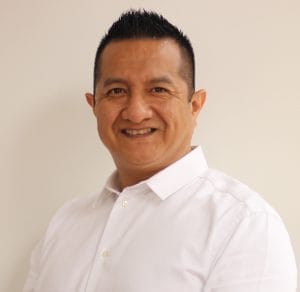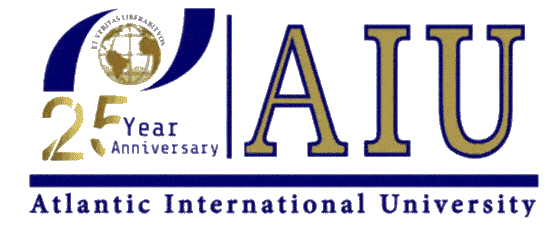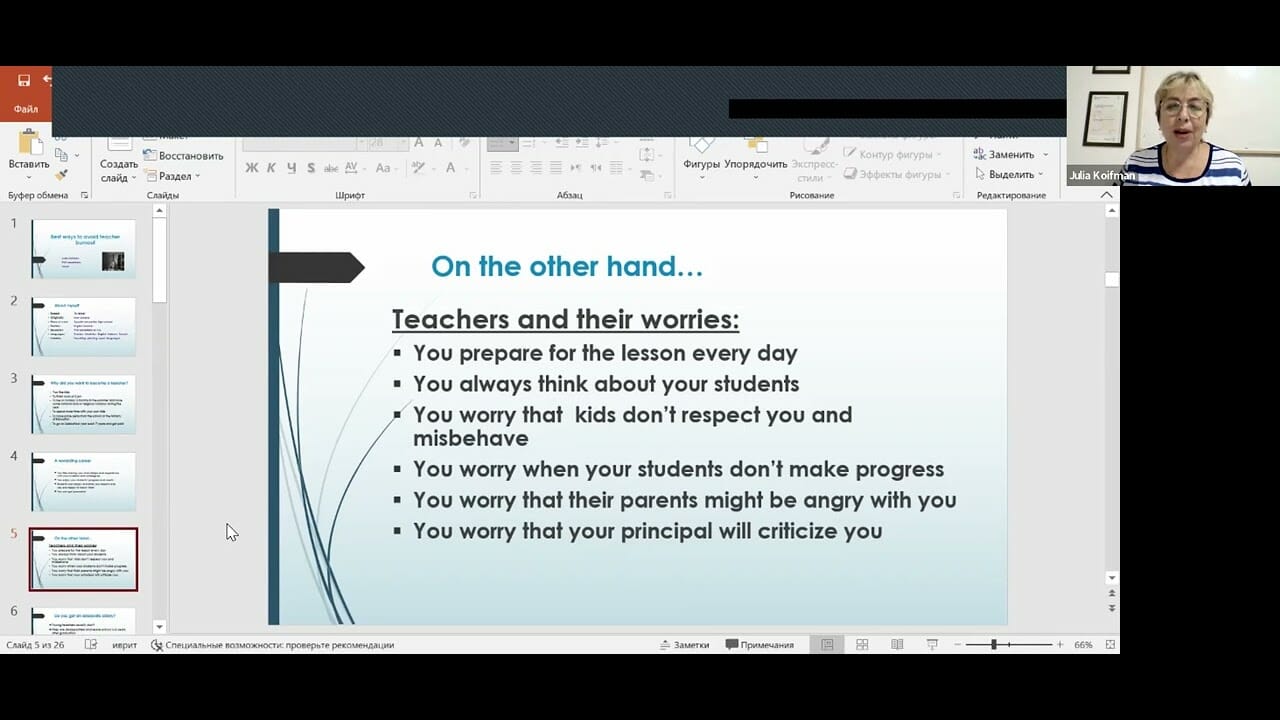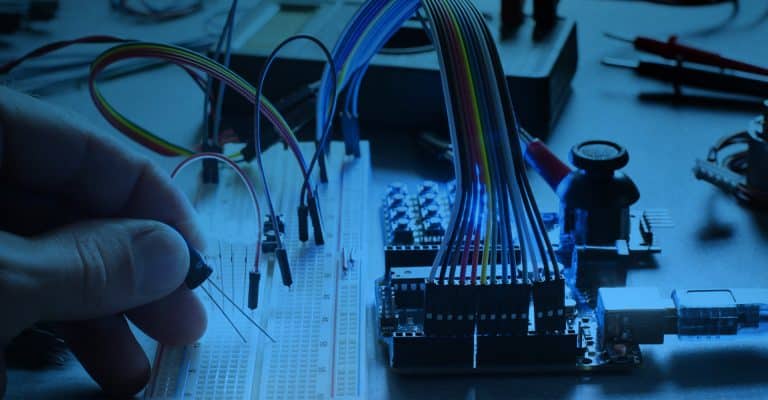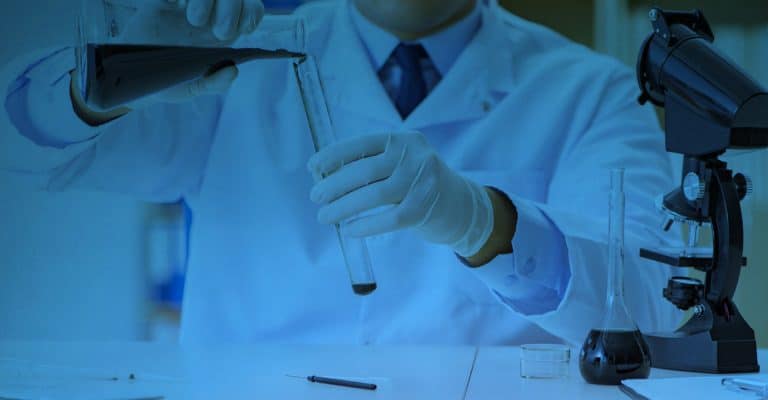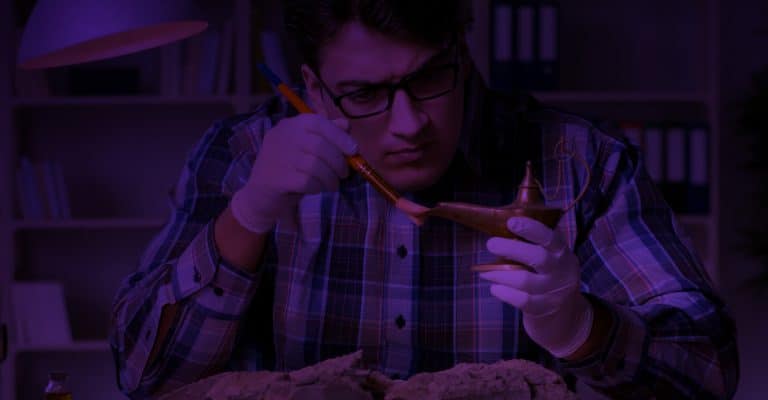- RESEARCHDistance Learning at AIU is enhanced by vast academic resources and innovative technologies build into the Virtual Campus: Hundreds of self-paced courses with video lectures and step by step lessons, thousands of optional assignments, 140,000 e-books, the Social Media & Networking platform allowing collaboration/chat/communications between students, and MYAIU develop students holistically in 11 areas beyond just academics.
- PROGRAMS OFFERED
- Areas of Study
- Courses and Curriculum
- Open Courses
- Register for a Program
- Certificate Program
-
Associate program
- Associate in Actuarial Science
- Associate in Addiction Counseling
- Associate in Agriculture Food And Resources
- Associate in Animal Science
- Associate in Anti Terrorism Security
- Associate in Behavior Analysis In Special Education
- Associate in Bioethics
- Associate in Biosystems
- Associate in Blockchain Technology & Digital Currency
- Associate in Business Communication
- Associate in Business Management
- Associate in Chemistry
- Associate in Climatology
- Associate in Cloud Computing
- Associate in Computer Engineering
- Associate in Computer Programming
- Associate in Computer Science
- Associate in Criminal Justice
- Associate in Culinary Arts
- Associate in Cultural Theological Communication
- Associate in Cybersecurity And Hacking
- Associate in Data Communication And Networking
- Associate in Database Administrator
- Associate in Early Childhood Education
- Associate in Ecotechnology
- Associate in Ecotourism
- Associate in Education
- Associate in Educational Technology
- Associate in Electric Vehicle Engineering
- Associate in Electrochemical Engineering
- Associate in Electronic Engineering
- Associate in English Literature
- Associate in Environmental Science
- Associate in eVTOL Engineering
- Associate in Fashion Design
- Associate in Fine Arts
- Associate in Foreign Trade
- Associate in Genetic Engineering
- Associate in Geography
- Associate in Geology
- Associate in Geophysical Sciences
- Associate in Graphic Design
- Associate in Health Sciences
- Associate in History
- Associate in Human Resources
- Associate in Integrated Water Management
- Associate in International Finance
- Associate in International Marketing
- Associate in Islamic Studies
- Associate in Kinesiology And Physiotherapy
- Associate in Library technology
- Associate in Linguistics
- Associate in Management
- Associate in Management Information Systems
- Associate in Maritime Management
- Associate in Metallurgy
- Associate in Micro and Multimode Grid Design
- Associate in Modern Power and Energy Systems
- Associate in Multimedia Design and Digital Art
- Associate in Nutrition
- Associate in Oil Gas And Energy Engineering
- Associate in Operations Management
- Associate in Optoelectronic Systems
- Associate in Organizational Development
- Associate in Organizational Diversity
- Associate in Pedagogical Training For Professionals
- Associate in Physical Culture And Sports
- Associate in Physics
- Associate in Public Health
- Associate in Quantum Computing Technology
- Associate in Radio And Television Production
- Associate in Scenography
- Associate in Social Media Marketing
- Associate in Sociology
- Associate in Sports Marketing
- Associate in Sports Psychology
- Associate in Sustainable Design and Construction
- Associate in Sustainable Materials Science
- Associate in Sustainable Natural Resources Management
- Associate in Sustainable Tourism
- Associate in Synthetic Biology
- Associate in Virtual Archival Science
- Associate of Adult Education
- Associate of Advertising
- Associate of Agriculture
- Associate of American History
- Associate of Biology
- Associate of Chemical Engineering
- Associate of Civil Engineering
- Associate of Communications
- Associate of Construction Management
- Associate of Economics
- Associate of Educational Administration
- Associate of Electrical Engineering
- Associate of Finance
- Associate of Healthcare Administration
- Associate of Human Resources Management
- Associate of Humanities
- Associate of Hydrology
- Associate of Industrial Engineering
- Associate of Information Systems
- Associate of Information Technology
- Associate of Interior Design
- Associate of International Relations
- Associate of Journalism
- Associate of Legal Studies
- Associate of Logistics
- Associate of Marketing
- Associate of Mass Media and Communication
- Associate of Mathematics
- Associate of Mechanical Engineering
- Associate of Mining Engineering
- Associate of Music
- Associate of Nutrition Science
- Associate of Philosophy
- Associate of Physical Education
- Associate of Political Science
- Associate of Project Management
- Associate of Psychology
- Associate of Renewable Energy
- Associate of Software Engineering
- Associate of Sport Science
- Associate of Statistics
- Associate of Strategic Management
- Associate of Technical Writing
- Associate of Telecommunications
- Associate of Theater
- Associate of Theology
- Associate of Tourism Planning and Development
- Associate of Travel and Tourism
- Associate of Unmanned Areal Systems Engineering
- Associates in Artificial Intelligence
- Associates in Engineering Systems
- Associates in Physical Anthropology
- Associates in Social Sciences
- Associates in Sociocultural Anthropology
- Associates in Systems Engineering
- Associates of Accounting
- Associates of Anthropology
- Associates of Archeology
- Associates of Architecture
- Associates of Art History
- Associates of Banking and Finance
- Associates of Business Administration
- Associates of Public Administration
- Associates of Science
- Associates of Urban Planning
- Associates of Visual and Performing Arts
- Micro and Multimode Grid Design
-
Bachelor Program
- Bachelor in Data Communication and Networking
- Bachelor in Actuarial Science
- Bachelor in Addiction Counseling
- Bachelor in Agriculture, Food and Resources
- Bachelor in Animal Science
- Bachelor in Anti Terrorism Security
- Bachelor in Artificial Intelligence
- Bachelor in Arts in Cultural Theological Communication
- Bachelor in Autonomous Vehicle Technology
- Bachelor in Bachelor of Bioethics (BA)
- Bachelor in Behavior Analysis in Special Education
- Bachelor in Bibliotechnology
- Bachelor in Biosystems
- Bachelor in Blockchain Technology & Digital Currency
- Bachelor in Business Communication
- Bachelor in Business Management
- Bachelor in Chemistry
- Bachelor in Cloud Computing
- Bachelor in Computer Science
- Bachelor in Criminal Justice
- Bachelor in Culinary Arts
- Bachelor in Cybersecurity and Hacking
- Bachelor in Database Administrator (BS)
- Bachelor in Ecotechnology
- Bachelor in Ecotourism
- Bachelor in Education (B.Ed, BS)
- Bachelor in Educational Technology
- Bachelor in Electric Vehicle Engineering
- Bachelor in Electrochemical Engineering
- Bachelor in English Literature
- Bachelor in eVTOL Engineering
- Bachelor in Fashion Design (BA)
- Bachelor in Fine Arts
- Bachelor in Foreign Trade
- Bachelor in Genetic Engineering
- Bachelor in Geology
- Bachelor in Geophysical Sciences
- Bachelor in Graphic Design
- Bachelor in Health Sciences
- Bachelor in Integrated Water Management
- Bachelor in International Finance
- Bachelor in International Marketing
- Bachelor in Islamic Studies
- Bachelor in Kinesiology and Physiotherapy
- Bachelor in Linguistics
- Bachelor in Management
- Bachelor in Metallurgy
- Bachelor in Micro and Multimode Grid Design
- Bachelor in Modern Power and Energy Systems
- Bachelor in Multimedia Design and Digital Art
- Bachelor in Nutrigenetics
- Bachelor in Operations Management (BA)
- Bachelor in Optoelectronic Systems
- Bachelor in Organizational Development
- Bachelor in Organizational Diversity
- Bachelor in Physical Anthropology
- Bachelor in Physical Culture And Sports
- Bachelor in Public Relations
- Bachelor in Quantum Computing Technology
- Bachelor in Radio And Television Production
- Bachelor in Scenography
- Bachelor in Social Media Marketing
- Bachelor in Social Sciences
- Bachelor in Sociocultural Anthropology
- Bachelor in Sport Management
- Bachelor in Sports Marketing
- Bachelor in Sports Psychology
- Bachelor in Sustainable Design and Construction
- Bachelor in Sustainable Materials Science
- Bachelor in Sustainable Natural Resources Management
- Bachelor in Sustainable Tourism
- Bachelor in Synthetic Biology
- Bachelor in Virtual Archival Science
- Bachelor of Adult Education
- Bachelor of Advertising
- Bachelor of Animation
- Bachelor of Art History
- Bachelor of Biohacking and Nutrigenomics
- Bachelor of Educational Administration
- Bachelor of Healthcare Administration
- Bachelor of Human Resources Management
- Bachelor of Humanities
- Bachelor of Hydrology
- Bachelor of Information Technology
- Bachelor of Mass Media and Communication
- Bachelor of Philosophy
- Bachelor of Physical Education
- Bachelor of Project Management
- Bachelor of Public Administration
- Bachelor of Software Engineering
- Bachelor of Sport Science
- Bachelor of Sports Science
- Bachelor of Statistics
- Bachelor of Strategic Management
- Bachelor of Technical Writing
- Bachelor of Theater
- Bachelor of Theology
- Bachelor of Tourism Planning and Development
- Bachelor of Travel and Tourism
- Bachelor of Unmanned Areal Systems Engineering
- Bachelor of Urban Planning
- Bachelor of Visual and Performing Arts
- Bachelor of Web Design
- Bachelors in Energy Storage and Battery Technology
- Bachelors in Accounting
- Bachelors in Accounting & Finance
- Bachelors in Agronomy Engineering
- Bachelors in Anthropology
- Bachelors in Architecture
- Bachelors in Automotive Engineering
- Bachelors in Banking and Finance
- Bachelors in Biology
- Bachelors in Business Administration
- Bachelors in Chemical Engineering
- Bachelors in Civil Engineering
- Bachelors in Communications
- Bachelors in Computer Engineering
- Bachelors in Criminal Justice
- Bachelors in Early Childhood Education
- Bachelors in Economics
- Bachelors in Electrical Engineering
- Bachelors in Electronic Engineering
- Bachelors in Engineering
- Bachelors in Environmental Science
- Bachelors in Finance
- Bachelors in Finance and Banking
- Bachelors in Health Sciences
- Bachelors in History
- Bachelors in Hospitality Management
- Bachelors in Human Resources
- Bachelors in Industrial Engineering
- Bachelors in Information Systems
- Bachelors in Interior Design
- Bachelors in International Business
- Bachelors in International Relations
- Bachelors in Journalism
- Bachelors in Legal Studies
- Bachelors in Logistics
- Bachelors in Marketing
- Bachelors in Mathematics
- Bachelors in Mechanical Engineering
- Bachelors in Mining Engineering
- Bachelors in Music
- Bachelors in Nutrition
- Bachelors in Oil Gas and Energy Engineering
- Bachelors in Pedagogy
- Bachelors in Physics
- Bachelors in Political Science
- Bachelors in Psychology
- Bachelors in Public Health
- Bachelors in Renewable Energy
- Bachelors in Sociology
- Bachelors in Systems Engineering
- Bachelors in Telecommunications
- Bachelors in Zoology
-
Doctorate Program
- DBA – Doctor of Business Administration
- Doctor | in Actuarial Science
- Doctor | in Agriculture Food And Resources
- Doctor | in Animal Science
- Doctor | in Biosystems
- Doctor | in Cultural Theological Communication
- Doctor | in Cybersecurity And Hacking
- Doctor | in Early Childhood Education
- Doctor | in Ecotechnology
- Doctor | In Ecotourism
- Doctor | In Educational Technology
- Doctor | In Electronic Engineering
- Doctor | In Foreign Trade
- Doctor | of Biology (PhD)
- Doctor in Addiction Counseling
- Doctor in Behavior Analysis In Special Education
- Doctor in Bibliotechnology
- Doctor in Business Management
- Doctor in Data Communication And Networking
- Doctor of Adult Education
- Doctor of Agriculture
- Doctor of American History
- Doctor of Animation
- Doctor of Anthropology
- Doctor of Archaeology
- Doctor of Architecture (Ph.D.)
- Doctor of Art History
- Doctor of Artificial Intelligence
- Doctor of Autonomous Vehicle Technology
- Doctor of Biohacking and Nutrigenomics
- Doctor of Business Management (DBM)
- Doctor of Civil Engineering (D.Sc)
- Doctor of Cloud Computing
- Doctor of Economics (PhD)
- Doctor of Educational Administration (PhD)
- Doctor of Electric Vehicle Engineering
- Doctor of Electrical Engineering (D.Sc, PhD)
- Doctor of Electrochemical Engineering
- Doctor of Engineering Systems (D.Sc)
- Doctor of eVTOL Engineering
- Doctor of Finance (PhD)
- Doctor of Humanities
- Doctor of Hydrology
- Doctor of Industrial Engineering (D.Sc)
- Doctor of International Relations (D.Sc)
- Doctor of Legal Studies (PhD)
- Doctor of Logistics
- Doctor of Mass Media and Communication
- Doctor of Mechanical Engineering (D.Sc)
- Doctor of Micro and Multimode Grid Design
- Doctor of Mining Engineering
- Doctor of Music
- Doctor of Nutrition Science
- Doctor of Optoelectronic Systems
- Doctor of Project Management (PhD)
- Doctor of Public Administration
- Doctor of Public Health (PhD, D.Sc)
- Doctor of Quantum Computing
- Doctor of Renewable Energy
- Doctor of Sociology (PhD, D.Sc)
- Doctor of Software Engineering
- Doctor of Sport Management
- Doctor of Sport Science
- Doctor of Statistics
- Doctor of Technical Writing
- Doctor of Telecommunications (D.Sc)
- Doctor of Theater
- Doctor of Tourism Planning and Development
- Doctor of Travel and Tourism
- Doctor of Unmanned Aerial Systems Engineering
- Doctor of Visual and Performing Arts
- Doctor of Web Design
- Doctoral Degree Programs
- Doctoral in International Finance
- Doctorate in Accounting
- Doctorate in Actuarial Science
- Doctorate in Adult Counseling
- Doctorate in Advertising
- Doctorate in Agriculture Food And Resources
- Doctorate in Animal Science
- Doctorate in Anti Terrorism Security
- Doctorate in Behavior Analysis In Special Education
- Doctorate in Bibliotechnology
- Doctorate in Bioethics
- Doctorate in Biosystems
- Doctorate in Business Administration (DBA, PhD)
- Doctorate in Business Communication
- Doctorate in Business Management
- Doctorate in Chemical Engineering (D.Sc)
- Doctorate in Chemistry
- Doctorate in Clinical Nutrition
- Doctorate in Communication Online (D.Sc)
- Doctorate in Computer Engineering
- Doctorate in Computer Science
- Doctorate in Conflict Resolution & Peace Building
- Doctorate in Criminal Justice
- Doctorate in Culinary Arts
- Doctorate in Cultural Theological Communication
- Doctorate in Cyber Security & Hacking
- Doctorate in Data Communication And Networking
- Doctorate in Digital Marketing
- Doctorate in Early Childhood Education
- Doctorate in Ecotechnology
- Doctorate in Ecotourism
- Doctorate in Education
- Doctorate in Educational Technology
- Doctorate in Electronic Engineering
- Doctorate in Environmental Science
- Doctorate in Fashion Design
- Doctorate in Fine Arts
- Doctorate in Foreign Trade
- Doctorate in Genetic Engineering
- Doctorate in Geophysical Sciences
- Doctorate in Global Health
- Doctorate in Health Sciences
- Doctorate in Healthcare Administration Programs (PhD)
- Doctorate in Hospital Administration
- Doctorate in Human Resource Management (PhD)
- Doctorate in Human Resources
- Doctorate in Information Systems (D.Sc)
- Doctorate in Information Technology (D.Sc)
- Doctorate in Integrated Water Management
- Doctorate in Interior Design (PhD)
- Doctorate in International Marketing
- Doctorate in International Relations
- Doctorate in Islamic Studies
- Doctorate in Journalism (PhD)
- Doctorate in Kinesiology & Physiotherapy
- Doctorate in Linguistics
- Doctorate in Management
- Doctorate in Maritime Management
- Doctorate in Marketing (PhD)
- Doctorate in Mathematics
- Doctorate in Metallurgy
- Doctorate in Modern Power and Energy Systems
- Doctorate in Multimedia Design and Digital Art
- Doctorate in Oil Gas And Energy Engineering
- Doctorate in Organizational Development
- Doctorate in Organizational Diversity
- Doctorate in Pedagogical Training For Professionals
- Doctorate in Physical Anthropology
- Doctorate in Physical Culture And Sports
- Doctorate in Physical Education (D.Sc)
- Doctorate in Political Science
- Doctorate in Psychology (PhD, DPsy)
- Doctorate in Radio And Television Production
- Doctorate in Scenography
- Doctorate in Security Management
- Doctorate in Social Media Marketing
- Doctorate in Sociocultural Anthropology
- Doctorate in Sports Management
- Doctorate in Sports Marketing
- Doctorate in Sports Psychology
- Doctorate in Strategic Leadership
- Doctorate in Strategic Management
- Doctorate in Sustainable Design and Construction
- Doctorate in Sustainable Materials Science
- Doctorate in Sustainable Natural Resources Management
- Doctorate in Sustainable Tourism
- Doctorate in Synthetic Biology
- Doctorate in Virtual Archival Science
- Doctorate of Theology
- DS – Doctorate in Science
- Online Doctorate in Health Administration
- Online Doctorate in Hospitality
- Online Doctorate in Philosophy
- Postdoctoral in Bioethics
- School of Social and Human Studies
-
Master Program
- Master in Actuarial Science
- Master in Addiction Counseling
- Master in Agriculture Food And Resources
- Master in Animal Science
- Master in Anti Terrorism Security
- Master in Autonomous Vehicle Technology
- Master in Behavior Analysis In Special Education
- Master in Bibliotechnology
- Master in Bioethics
- Master in Biosystems
- Master in Blockchain Technology and Digital Currency
- Master in Business Communication
- Master in Chemistry
- Master in Climatology
- Master in Cloud Computing
- Master in Computer Programming
- Master in Criminal Justice
- Master in Culinary Arts
- Master in Cultural Theological Communication
- Master in Cybersecurity And Hacking
- Master in Data Communication And Networking
- Master in Database Administrator
- Master in Early Childhood Education
- Master in Ecotechnology
- Master in Ecotourism
- Master in Educational Technology
- Master in Electric Vehicle Engineering
- Master in Electronic Engineering
- Master in Energy Storage and Battery Technology
- Master in Engineering Systems (MS)
- Master in Environmental Science
- Master in eVTOL Engineering
- Master in Fashion Design
- Master in Fine Arts
- Master in Foreign Trade
- Master in Geography
- Master in Geophysical Sciences
- Master in Graphic Design
- Master in Health Sciences
- Master in History
- Master in Industrial Engineering
- Master in Integrated Water Management
- Master in International Finance
- Master in Islamic Studies
- Master in Kinesiology And Physiotherapy
- Master in Linguistics
- Master in Management
- Master in Management Information Systems
- Master in Mass Media and Communication
- Master in Metallurgy
- Master in Micro and Multimode Grid Design
- Master in Microbiology
- Master in Modern Power and Energy Systems
- Master in Multimedia Design and Digital Art
- Master in Nutritional Science
- Master in Oil Gas And Energy Engineering
- Master in Organizational Development
- Master in Organizational Diversity
- Master in Pedagogical Training For Professionals
- Master in Philosophy
- Master in Physical Anthropology
- Master in Physical Culture And Sports
- Master in Public Administration (MA)
- Master in Quantum Computing
- Master in Radio And Television Production
- Master in Scenography
- Master in Social Media Marketing
- Master in Social Sciences
- Master in Sociocultural Anthropology
- Master in Sociology (MA, MS)
- Master in Software Engineering
- Master in Sport Management
- Master in Sport Science
- Master in Sports Marketing
- Master in Sports Psychology
- Master in Statistics
- Master in Strategic Management
- Master in Sustainable Design and Construction
- Master in Sustainable Materials Science
- Master in Sustainable Natural Resources Management
- Master in Sustainable Tourism
- Master in Synthetic Biology
- Master in Technical Writing
- Master in Theater
- Master in Theology
- Master in Unmanned Aerial Systems Engineering (UAV and Drone Technology)
- Master in Virtual Archival Science
- Master of Adult Education
- Master of Advertising (MS, MBA)
- Master of Agriculture (MS)
- Master of American History
- Master of Animation
- Master of Anthropology (MA)
- Master of Archeology (MA)
- Master of Art History (MA)
- Master of Artificial Intelligence
- Master of Banking and Finance (MA)
- Master of Biohacking and Nutrigenomics
- Master of Biology (MS)
- Master of Business Management (MS, MBM)
- Master of Chemical Engineering (MS)
- Master of Computer Engineering
- Master of Construction Management
- Master of Economics (MS)
- Master of Human Resources Management (MHRM)
- Master of Humanities (MA)
- Master of Hydrology (MS)
- Master of Interior Design (MA)
- Master of International Relations (MS)
- Master of Journalism (MA, MJ)
- Master of Logistics (MA)
- Master of Marketing (MS, MBA, MPA)
- Master of Mathematics (MS)
- Master of Mechanical Engineering (MS)
- Master of Mining Engineering (MS)
- Master of Music (MA)
- Master of Nutrition Science
- Master of Physical Education (MS)
- Master of Renewable Energy (MS)
- Master of Science in Educational Administration (MS)
- Master of Science in Healthcare Administration (MS)
- Master of Telecommunications (MS, M.TEL.)
- Master of Tourism Planning and Development
- Master of Travel and Tourism
- Master of Urban Planning
- Master of Visual and Performing Arts
- Master of Web Design
- Masters in Accounting
- Masters in Architecture
- Masters in Business Administration
- Masters in Business Management
- Masters in Civil Engineering
- Masters in Communication
- Masters in Computer Science
- Masters in Education
- Masters in Electrical Engineering
- Masters in Finance
- Masters in Human Resources
- Masters in Information Systems
- Masters in Information Technology
- Masters in International Marketing
- Masters in International Relations
- Masters in Legal Studies
- Masters in Political Science
- Masters in Project Management
- Masters in Psychology
- Masters in Public Health
-
Postdoctoral Program
- Postdoctoral in Actuarial Science
- Postdoctoral in Addiction Counseling
- Postdoctoral in Animal Science
- Postdoctoral in Anti Terrorism Security
- Postdoctoral in Autonomous Vehicle Technology
- Postdoctoral in Behavior Analysis In Special Education
- Postdoctoral in Bibliotechnology
- Postdoctoral in Bioethics
- Postdoctoral in Biohacking and Nutrigenomics
- Postdoctoral in Biosystems
- Postdoctoral in Blockchain Technology and Digital Currency
- Postdoctoral in Business Communication
- Postdoctoral in Business Management
- Postdoctoral in Chemistry
- Postdoctoral in Cloud Computing
- Postdoctoral in Computer Engineering
- Postdoctoral in Computer Science
- Postdoctoral in Criminal Justice
- Postdoctoral in Culinary Arts
- Postdoctoral in Cultural Theological Communication
- Postdoctoral in Cybersecurity And Hacking
- Postdoctoral in Data Communication And Networking
- Postdoctoral in Early Childhood Education
- Postdoctoral in Ecotechnology
- Postdoctoral in Ecotourism
- Postdoctoral in Education
- Postdoctoral in Educational Technology
- Postdoctoral in Electrical Vehicle Engineering
- Postdoctoral in Electrochemical Engineering
- Postdoctoral in Electronic Engineering
- Postdoctoral in Energy Storage and Battery Technology
- Postdoctoral in Engineering Systems
- Postdoctoral in English Literature
- Postdoctoral in Environmental Science
- Postdoctoral in eVTOL Engineering
- Postdoctoral in Fashion Design
- Postdoctoral in Fine Arts
- Postdoctoral in Foreign Trade
- Postdoctoral in Genetic Engineering
- Postdoctoral in Geophysical Sciences
- Postdoctoral in Graphic Design
- Postdoctoral in Health Sciences
- Postdoctoral in Human Resources
- Postdoctoral in Humanities
- Postdoctoral in Integrated Water Management
- Postdoctoral in International Finance
- Postdoctoral in International Marketing
- Postdoctoral in International Relations
- Postdoctoral in Islamic Studies
- Postdoctoral in Journalism
- Postdoctoral in Kinesiology And Physiotherapy
- Postdoctoral in Linguistics
- Postdoctoral in Logistics
- Postdoctoral in Management
- Postdoctoral in Marketing
- Postdoctoral in Mass Communication
- Postdoctoral in Mathematics
- Postdoctoral in Metallurgy
- Postdoctoral in Micro and Multimode Grid Design
- Postdoctoral in Mining Engineering
- Postdoctoral in Modern Power and Energy Systems
- Postdoctoral in Multimedia Design and Digital Art
- Postdoctoral in Music
- Postdoctoral in Nutrigenetics
- Postdoctoral in Nutrition
- Postdoctoral in Oil, Gas and Energy Engineering
- Postdoctoral in Organizational Development
- Postdoctoral in Organizational Diversity
- Postdoctoral in Pedagogical Training For Professionals
- Postdoctoral in Philosophy
- Postdoctoral in Physical Anthropology
- Postdoctoral in Physical Culture And Sports
- Postdoctoral in Political Science
- Postdoctoral in Public Administration
- Postdoctoral in Public Health
- Postdoctoral in Quantum Computing
- Postdoctoral in Radio And Television Production
- Postdoctoral in Social Media Marketing
- Postdoctoral in Social Sciences
- Postdoctoral in Sociocultural Anthropology
- Postdoctoral in Sociology
- Postdoctoral in Software Engineering
- Postdoctoral in Sport Management
- Postdoctoral in Sport Science
- Postdoctoral in Sports Marketing
- Postdoctoral in Sports Psychology
- Postdoctoral in Statistics
- Postdoctoral in Strategic Management
- Postdoctoral in Sustainable Design and Construction
- Postdoctoral in Sustainable Materials Science
- Postdoctoral in Sustainable Natural Resources Management
- Postdoctoral in Sustainable Tourism
- Postdoctoral in Synthetic Biology
- Postdoctoral in Technical Writing
- Postdoctoral in Theater
- Postdoctoral in Theology
- Postdoctoral in Virtual Archival Science
- Postdoctoral of Biology
- Postdoctoral of Industrial Engineering
- Postdoctoral of Information Systems
- Postdoctoral of Legal Studies
- Postdoctoral Research in Accounting
- Postdoctoral Research in Adult Education
- Postdoctoral Research in Advertising
- Postdoctoral Research in Agriculture
- Postdoctoral Research in American History
- Postdoctoral Research in Animation
- Postdoctoral Research in Anthropology
- Postdoctoral Research in Archeology
- Postdoctoral Research in Architecture
- Postdoctoral Research in Art History
- Postdoctoral Research in Artificial Intelligence
- Postdoctoral Research in Banking and Finance
- Postdoctoral Research in Business Administration
- Postdoctoral Research in Business Management
- Postdoctoral Research in Chemical Engineering
- Postdoctoral Research in Civil Engineering
- Postdoctoral Research in Communications
- Postdoctoral Research in Economics
- Postdoctoral Research in Educational Administration
- Postdoctoral Research in Electrical Engineering
- Postdoctoral Research in Finance
- Postdoctoral Research in Healthcare Administration
- Postdoctoral Research in Human Resources Management
- Postdoctoral Research in Information Technology
- Postdoctoral Research in Interior Design
- Postdoctoral Research in International Relations
- Postdoctoral Research in Mechanical Engineering
- Postdoctoral Research in Physical Education
- Postdoctoral Research in Project Management
- Postdoctoral Research in Psychology
- Postdoctoral Research in Renewable Energy
- Postdoctoral Research in Scenography
- Postdoctoral Research in Telecommunications
- Postdoctoral Research in Tourism Planning and Development
- Postdoctoral Research in Travel and Tourism
- Postdoctoral Research in Unmanned Aerial Systems Engineering (UAV and drone technology)
- Postdoctoral Research in Urban Planning
- Postdoctoral Research in Visual and Performing Arts
- Postdoctoral Research in Web Design
- Postdoctoral Research Program
AIU offers a wide range of majors in areas including the Arts, Business, Science, Technology, Social, and Human studies. More than 120 degrees and programs are available for adult learners at the associate’s, bachelor’s, master’s, doctoral and postdoctoral level. - VIRTUAL CAMPUS
Distance Learning at AIU is enhanced by vast academic resources and innovative technologies build into the Virtual Campus: Hundreds of self-paced courses with video lectures and step by step lessons, thousands of optional assignments, 140,000 e-books, the Social Media & Networking platform allowing collaboration/chat/communications between students, and MYAIU develop students holistically in 11 areas beyond just academics.
- ALUMNI
The world is YOUR campus!”, that is the message of AIU’s month magazine Campus Mundi. Hear the voices and see the faces that make up AIU. Campus Mundi brings the world of AIU to you every months with inspirational stories, news and achievements by AIU members from around the world (students and staff are located in over 200 countries).
Bachelors in Chemical Engineering
School of Science & Engineering
Academic Freedom to Discover Your Purpose
Open Curriculum Design at Atlantic International University
Atlantic International University offers an exceptional online Bachelor’s degree program in Chemical Engineering, providing students with a comprehensive education that combines theoretical knowledge with practical skills.
The program is designed to accommodate the flexibility needed by working professionals or individuals with other commitments. Students engage in a rigorous curriculum covering core principles of chemical engineering, including thermodynamics, reaction engineering, and process design.
Through innovative online platforms, AIU fosters a dynamic learning environment, promoting interaction with professors and peers globally. Graduates of the program emerge well-equipped with the expertise to tackle contemporary challenges in the field, making AIU’s online Bachelor’s in Chemical Engineering a valuable and convenient choice for aspiring engineers.
Important: Here’s an illustrative glimpse into potential study topics and areas you might explore throughout your academic journey. Please note, this is not an exhaustive or mandatory list, as AIU’s programs prioritize personalized learning paths over standardized curriculum. This example serves as a reference to showcase the breadth of possibilities. If you’re curious about the unique curriculum structure at AIU, would you like to delve deeper into understanding its design?
Contact Us Today!
We understand how busy adults do not have time to go back to school. Now, it’s possible to earn your degree in the comfort of your own home and still have time for yourself and your family. The Admissions office is here to help you, for additional information or to see if you qualify for admissions please contact us. If you are ready to apply please submit your Online Application and paste your resume and any additional comments/questions in the area provided.
Pioneer Plaza
900 Fort Street Mall 905
Honolulu, HI 96813
800-993-0066 (Toll Free in US)
808-924-9567 (Internationally)
808-947-2488 (Fax)
Courses and Topics in Bachelors in Chemical Engineering
The Bachelors in Chemical Engineering at Atlantic International University offers a diverse array of courses and topics, ensuring a well-rounded education for aspiring engineers. Core subjects encompass fundamental principles like thermodynamics, reaction engineering, and process design. Additionally, students delve into specialized areas such as environmental engineering, polymer science, and biochemical engineering.
The curriculum is designed to equip learners with the knowledge and skills necessary for addressing real-world challenges. Through engaging coursework and interactive online platforms, AIU fosters a dynamic learning environment, preparing graduates for success in the dynamic field of chemical engineering.
- Introduction to Chemical Engineering
- Thermodynamics
- Chemical Engineering Design
- Mathematics for Engineers
- Analytical Chemistry
- Quantitative Chemical Analysis
- Physical Chemistry
- Laboratory Procedures in Chemical
- Engineering
- Heat Transfer
- Thermodynamics and Kinetics
- Chemical process modeling
- Differential Equations
- Chemical reactor
- Fluid dynamics
- Polymer Science
- Transport Processes
- Separation Processes
- Unit Operations of Chemical Engineering
- Nanotechnology
- Mass transfer
Orientation Courses
Atlantic International University’s Bachelors in Chemical Engineering features comprehensive orientation courses that lay a strong foundation for students entering the program. These orientation modules serve as an essential bridge, acquainting learners with the academic structure, online tools, and resources unique to AIU.
The courses provide a detailed overview of the curriculum, outlining key subjects, learning objectives, and assessment methods. Moreover, students gain insight into the technological platforms employed for virtual lectures, collaborative projects, and communication with professors and peers.
The orientation emphasizes time management skills, study techniques, and effective utilization of online libraries and research databases. This thoughtful introduction ensures that students are well-prepared to navigate the virtual learning environment, fostering a smooth transition into the challenging yet rewarding realm of Chemical Engineering. AIU’s commitment to a robust orientation experience reflects its dedication to student success and a holistic educational journey.
- Communication & Investigation (Comprehensive Resume)
- Organization Theory (Portfolio)
- Experiential Learning (Autobiography)
- Academic Evaluation (Questionnaire)
- Fundament of Knowledge (Integration Chart)
- Fundamental Principles I (Philosophy of Education)
- Professional Evaluation (Self Evaluation Matrix)
- Development of Graduate Study (Guarantee of an Academic Degree)
Research Projects in Bachelors in Chemical Engineering
Atlantic International University’s Bachelor’s in Chemical Engineering program emphasizes hands-on research projects to enhance students’ practical skills and theoretical understanding. Under faculty guidance, students engage in innovative research initiatives covering diverse areas such as sustainable processes, materials development, and environmental impact assessment. These projects not only deepen students’ knowledge but also prepare them for real-world challenges, ensuring a well-rounded education and fostering a spirit of inquiry within the field of chemical engineering.
- MBM300 Thesis Proposal
- MBM302 Bachelor Thesis (5,000 words)
Publication: At AIU, we acknowledge the importance of sharing pioneering discoveries. Our dedication to academic distinction encompasses offering platforms for publishing research findings. Immersed in the dynamic realm of electrical engineering, students are encouraged to share their discoveries, contributing to the broader academic conversation. Prioritizing student publications not only enhances the practical significance of their academic pursuits but also establishes a concrete heritage for future generations in the field of chemical engineering.
The harmony between research initiatives and published works highlights our commitment to nurturing the succeeding cohort of inventive and knowledgeable chemical engineers. This emphasis on disseminating research findings underscores our ongoing dedication to shaping a future generation of innovative and well-informed professionals in the realm of chemical engineering.
Dissertation & Thesis Defense
In the concluding phase of AIU’s Bachelor’s in Chemical Engineering program, students seize a distinctive opportunity to display their expertise and innovation in the field via a comprehensive thesis proposal. This pivotal phase encapsulates their academic journey, offering a platform for exploring advanced Chemical Engineering topics. The thesis defense, a cornerstone of the program, allows students to showcase their research skills, critical thinking, and practical application of knowledge gained, underscoring their readiness to contribute meaningfully to the field upon completing their degree at AIU.
Cutting-edge Curriculum with Real-world Applications is Just a Click Away
Apply Now for Admission
Transformative Journey of Bachelor’s Degree Student at AIU
Embarking on the transformative journey of a Bachelor’s in Chemical Engineering at Atlantic International University is a profound experience. The curriculum seamlessly blends theoretical foundations with hands-on applications, enabling students to grasp complex concepts and develop critical problem-solving skills.
AIU’s global reach fosters a diverse learning community, exposing students to a myriad of perspectives. Through interactive online platforms, students engage with esteemed professors and fellow learners, creating a collaborative environment that transcends geographical boundaries.
The transformative journey unfolds as students delve into specialized courses like thermodynamics, reaction engineering, and process design. Practical projects and real-world case studies provide a bridge between theory and application, preparing students for the dynamic challenges of the field.
As the journey progresses, students witness their intellectual growth and professional development, emerging not only as adept chemical engineers but as global citizens ready to contribute meaningfully to the ever-evolving landscape of science and technology. AIU’s commitment to academic excellence and flexibility ensures that each student’s transformative journey is uniquely impactful and prepares them for a successful career in Chemical Engineering.
Community & Social
The online program at AIU cultivates an energetic community using cutting-edge technologies and collaborative tools, ensuring a nurturing academic journey. Through platforms like the Virtual Campus, Mobile APP, MYAIU, AIULink, and AIUTV, students, faculty, and alumni come together, creating a network of interconnected minds. Engaging in thought-provoking symposiums, webinars, and conferences fosters global connections among the community.
Accessing the Merlin Media Center provides a wealth of academic resources while staying linked through AIULink ensures ongoing connectivity. The AIU Virtual Campus, APP compatible with both Android and iOS, offers effortless access to programs, tools and academic resources. These platforms facilitate the sharing of personal narratives, exploring holistic development, and contributing to the betterment of humanity, shaping an AIU experience that stands unparalleled.
Academic Resources
At Atlantic International University, the Virtual Campus serves as an innovative center equipped with more than 25 specialized tools, all geared towards supporting and empowering students throughout their educational endeavors. Our newest feature, the Virtual Reality 3D immersive experience, elevates community interaction, nurturing growth, motivation, and inspiration among our diverse student population.
Also, AIU includes the leading Artificial intelligence (AI) tools such as ChatGPT, Dall-E and Midjoruney, PDF Executive Assistance, Slide Generator Slide Generator plus others and is adding new AI tools to ensure students are fluent in this emerging trend and benefit from the boost in productivity they bring.
Within our extensive online library, comprising 260,000 books and 30 million peer-reviewed articles, alongside 105,000 resources co-curated by the AIU community, we establish an unmatched academic setting dedicated to fostering the growth, development, and success of our students.
Virtual Campus
Complete assignments online or offline at your convenience with 24/7 access to distance learning through AIU’s Virtual Campus. Step by Step guides including videos, tutorials, live webinars and examples for each course. All materials can be access on all web browsers as well as via AIU's Mobile App which brings all the features of the Virtual Camus to your Mobile Device.
My AIU Elements
MyAIU’s primary goal is to go beyond Academics, it looks to guide students through 11 elements that are key to living life optimally in all aspects. By identifying and reflecting on these key areas, an opportunity arises to holistically address them, through positive change, habits, reinforcement and tools to keep students on their chosen path.
AIU TV & Radio
The students have the opportunity to produce, edit and host their own show reaching a worldwide audience, the AIU community and giving notice of their expertise/passion in the subject. AIUTV & AIU Radio allow students to explore new ways to communicate, develop a platform and form potential collaboration with likeminded individuals.
AIU Campus Mundi
AIU Campus Mundi is a monthly magazine that gathers the most notable news and information about the university and its members in one convenient place. The magazine allows our community to be well informed, involved and keep in tough regardless of their geographic location. AIU Campus Mundi publishes, news, research, events, awards, academic achievements.
Graduation Ceremony
Each year AIU organizes graduation ceremonies where the students can assist and share their experiences with fellow students and academic members Participation in the ceremony is optional, the day’s events include conferences, research presentations, group meetings, networking, lunch and formal dinner.
Symposiums & Webinars
At AIU, our symposiums stand as crucial centers for knowledge and innovation, creating an active space for Bachelor in Chemical Engineering students. These events play a vital role in sharing pioneering research, encouraging vibrant exchanges of ideas, and nurturing lively discussions. By participating in these symposiums, individuals receive invaluable exposure to a wide array of perspectives, sparking collaborative research initiatives that consistently push the boundaries within the field of Chemical Engineering.
Live Classes
AIU introduces an innovative approach to virtual learning by incorporating dynamic live sessions twice daily. One can also access these live classes from the archive that hosts 100s of classes that can be combined to personalize the academic journey of a student. Led by seasoned faculty and experts from various industries, these sessions offer real-time discussions, interactive Q&A segments, and collaborative problem-solving, enriching your comprehension of community and public health.
Participating in these sessions augments your expertise, equipping you to shape policies and refine your skills in hospitality. AIU’s live classes promise intellectually engaging dialogues, up-to-the-minute industry perspectives, and personalized feedback from instructors, guaranteeing a rewarding journey through the study of Chemical Engineering.
Following are the live classes you can check if you are interested in studying Bachelors in Chemical Engineering.
Engineering design process and its practical application by Muhammad Al Fayshal/ Plastic Pyrolysis by Manish sharma Timilsina
Special Projects, Research, Publications, and Co-Authoring
AIU’s Bachelor’s in Chemical Engineering fosters a dynamic academic environment where students engage in special projects, conduct research, and collaborate on publications. Through hands-on projects, students explore real-world applications. They actively participate in research initiatives, gaining insights into cutting-edge developments. The program encourages co-authoring publications, enabling students to contribute to scholarly discourse and cultivate a robust professional portfolio.
Prepare for a Dynamic Career in Chemical Engineering with AIU’s Online Education
Explore Our Live Classes
Career Center for Bachelors in Chemical Engineering
AIU provides a dedicated Career Center for Bachelors in Chemical Engineering students, serving as a crucial resource in shaping their professional trajectories. The Career Center at AIU is committed to fostering career development by offering personalized guidance, resume building assistance, and interview preparation. Students benefit from industry-specific insights, networking opportunities, and access to a job portal that connects them with global employers seeking skilled chemical engineers.
The center collaborates with industry partners to provide internships, ensuring students gain practical experience and enhance their employability. Through workshops and seminars, the Career Center equips students with essential skills to navigate the job market successfully. AIU’s commitment to the holistic development of its students extends beyond academics, making the Career Center an invaluable asset in propelling Bachelors in Chemical Engineering graduates towards fulfilling and rewarding professional endeavors.
Job Description
As a Chemical Engineer, you play a pivotal role in designing, developing, and optimizing processes for the production of chemicals, fuels, and materials. Leveraging your knowledge in thermodynamics, reaction engineering, and process design, you contribute to the efficient and sustainable operation of manufacturing plants. Responsibilities include conducting research, analyzing data, and implementing safety measures.
Collaboration with cross-functional teams is crucial for problem-solving and innovation. Your role extends to environmental compliance, ensuring adherence to regulations. A Bachelor’s in Chemical Engineering equips you with the skills to drive advancements in diverse industries, from pharmaceuticals to energy.
Employment Opportunities for Bachelors in Chemical Engineering
- Process Engineering: Graduates can pursue roles optimizing manufacturing processes, ensuring efficiency, and maintaining high-quality standards in industries such as chemicals, petrochemicals, and food production.
- Pharmaceutical Industry: Opportunities abound in drug manufacturing and development, where chemical engineers play a crucial role in designing and optimizing processes for pharmaceutical production.
- Environmental Engineering: Chemical engineers contribute to sustainability efforts by working on projects related to waste management, pollution control, and environmental compliance in various industries.
- Energy Sector: Roles in oil and gas exploration, as well as renewable energy, offer exciting prospects for chemical engineers to contribute to energy production and sustainability initiatives.
- Materials Engineering: Chemical engineers are involved in developing new materials for industries like electronics, aerospace, and automotive, contributing to advancements in technology and manufacturing.
- Research and Development: Opportunities exist in research institutions and private companies for chemical engineers to contribute to innovative solutions, product development, and technology advancements.
- Consulting: Chemical engineers can work as consultants, offering expertise to businesses in optimizing processes, improving efficiency, and addressing technical challenges.
- Regulatory Compliance: Graduates can specialize in ensuring adherence to environmental and safety regulations, playing a vital role in maintaining ethical and legal standards in various industries.
Tools for Professionals with Bachelors in Chemical Engineering
These tools and software are commonly used in the field of Chemical Engineering and can be valuable for professionals in various domains within the discipline.
Associations for Professionals with Bachelors in Chemical Engineering
These associations provide valuable networking opportunities, access to industry trends, and resources for professional development for individuals with a Bachelors in Chemical Engineering.
American Institute of Chemical Engineers (AIChE): AIChE is a leading professional organization for chemical engineers, offering networking opportunities, conferences, and resources for career development.
Institution of Chemical Engineers (IChemE): IChemE is a global organization supporting chemical engineers with resources, training, and networking opportunities.
National Society of Professional Engineers (NSPE): NSPE provides support and resources for professional engineers, advocating for ethical engineering practices and career advancement.
American Chemical Society (ACS): ACS is a scientific society that provides resources and networking opportunities for professionals in the chemical sciences, including chemical engineers.
International Society for Pharmaceutical Engineering (ISPE): ISPE focuses on the pharmaceutical and biopharmaceutical industries, offering events, training, and resources for professionals in engineering roles.
Engineering Council: The Engineering Council is a UK-based organization that represents professional engineering institutions and offers support for engineering professionals.
Society of Petroleum Engineers (SPE): SPE is a global organization supporting professionals in the oil and gas industry, including those with expertise in chemical engineering.
Association of Energy Services Professionals (AESP): AESP focuses on energy professionals, offering networking and educational opportunities for those involved in energy services, which may include chemical engineers.
Empowering Engineers Worldwide with Opportunities to Interact with Global Peers and Esteemed Faculty
Request for more information
Requirements for Bachelors in Chemical Engineering
To pursue a Bachelor’s in Chemical Engineering from AIU, aspiring students typically need a high school diploma or equivalent, along with a strong foundation in mathematics and science. Admissions requirements may vary among institutions, but often include standardized test scores, such as the SAT or ACT.
Additionally, submission of transcripts, letters of recommendation, and a personal statement outlining the candidate’s interest in chemical engineering can be required. Some universities may have specific prerequisite courses in chemistry, physics, and mathematics. It’s essential for prospective students to thoroughly review the admission criteria of the chosen institution and ensure that they meet or exceed the outlined requirements to pursue a Bachelor’s in Chemical Engineering successfully.
How Can You Apply?
To apply for a Bachelor’s in Chemical Engineering, prospective students should visit the official website of the university or college offering the program. Navigate to the admissions section and follow the outlined application process.
Typically, applicants need to submit their high school transcripts, standardized test scores (e.g., SAT or ACT), letters of recommendation, and a personal statement expressing their interest in chemical engineering. It is essential to meet any prerequisite course requirements and deadlines set by the institution. Completing the online application form and providing all required documents will initiate the admission process for a Bachelor’s in Chemical Engineering.
Financial Support & Scholarships
We are thrilled to offer a range of scholarships tailored for our undergraduate students. Please provide your information to explore various scholarship opportunities designed to support your academic pursuits. Let us assist you in achieving your educational goals and nurturing your scholarly ambitions.
How Much Does Bachelors in Chemical Engineering Cost Per Year?
We recognize the significance of financial flexibility in your educational endeavors. Hence, depending upon the type of program you choose, we have introduced a convenient monthly payment plan to make your pursuit of a bachelor degree manageable and free from financial worries. Our exceptionally affordable tuition fee covers the expense Bachelors in Chemical Engineering. So, secure your future with AIU, where first-rate education aligns perfectly with your budget. Your aspirations are well within your grasp.
FAQs
Can I pursue a bachelor's in chemical engineering online?
Yes, many universities offer online Bachelor’s in Chemical Engineering programs, providing flexibility for individuals with work or other commitments. Online programs often cover core chemical engineering principles through virtual lectures, simulations, and interactive assignments. Students can access study materials and collaborate with professors and peers remotely.
However, some programs may include on-site labs or internships to ensure hands-on experience. It’s crucial to choose an accredited institution, ensuring the program meets industry standards. Check specific admission requirements, technical requirements for online learning, and the availability of support services. Pursuing a Bachelor’s in Chemical Engineering online can be a convenient option for those seeking a flexible and accessible education.
What is the typical duration of a bachelor's program in chemical engineering?
The typical duration of a Bachelor’s program in Chemical Engineering is around four years, equivalent to eight semesters. This standard timeframe allows students to cover the fundamental principles of chemistry, physics, mathematics, and engineering, along with specialized courses in chemical engineering.
During this period, students typically engage in theoretical classroom learning, laboratory work, and often a final-year project or internship to gain practical experience. The four-year structure is designed to provide a comprehensive understanding of the field, ensuring graduates are well-prepared for entry-level positions or further academic pursuits. However, program durations can vary among institutions, and some universities may offer accelerated or extended options based on individual preferences and academic progress.
Are there any prerequisites for entering a chemical engineering program?
Prerequisites for entering a chemical engineering program may vary among institutions, but common requirements include a high school diploma or equivalent with a strong foundation in mathematics and science. Some programs may specify prerequisite courses in chemistry, physics, and advanced mathematics.
Additionally, standardized test scores such as the SAT or ACT may be required. While not mandatory, a background in computer programming or technology can be beneficial. Applicants often need to submit letters of recommendation, a personal statement, and transcripts. It’s crucial to check the specific admission criteria of the chosen institution to ensure compliance with prerequisites and to enhance the likelihood of successful entry into a chemical engineering program.
Are there any specific concentrations or specializations within chemical engineering programs?
Yes, chemical engineering programs often offer concentrations or specializations to cater to diverse career paths. Common specializations include Process Engineering, where students focus on optimizing manufacturing processes, and Environmental Engineering, emphasizing sustainability and pollution control. Other concentrations may include Biomedical Engineering, Materials Science, and Energy Systems, allowing students to delve deeper into specific industries.
Some programs offer interdisciplinary options like Chemical and Biological Engineering, merging principles of biology with chemical engineering. These specializations enable students to tailor their education to their interests and career goals, providing a more focused and specialized skill set upon graduation. The availability of concentrations may vary among institutions.
Contact Us
Atlantic International University
900 Fort Street Mall 905 Honolulu, HI 96813
Quick Links
Home | Spanish | Online Courses | Available Courses | Vrtual Campus | Career Center | Available Positions | Ask Career Coach | The Job Interview | Resume Writing | Accreditation | Areas of Study | Bachelor Degree Programs | Masters Degree Programs | Doctoral Degree Programs | Course & Curriculum | Human Rights | Online Library | Representations | Student Publication | Sponsors | General Information | Mission & Vision | School of Business and Economics | School of Science and Engineering | School of Social an Human Studies | Media Center | Admission Requirements | Apply Online | Tuition | Faculty & Staff | Distance Learning Overview | Student Testimonials | Frequently Asked Questions | Register for Program | Privacy Policy | FAQ


